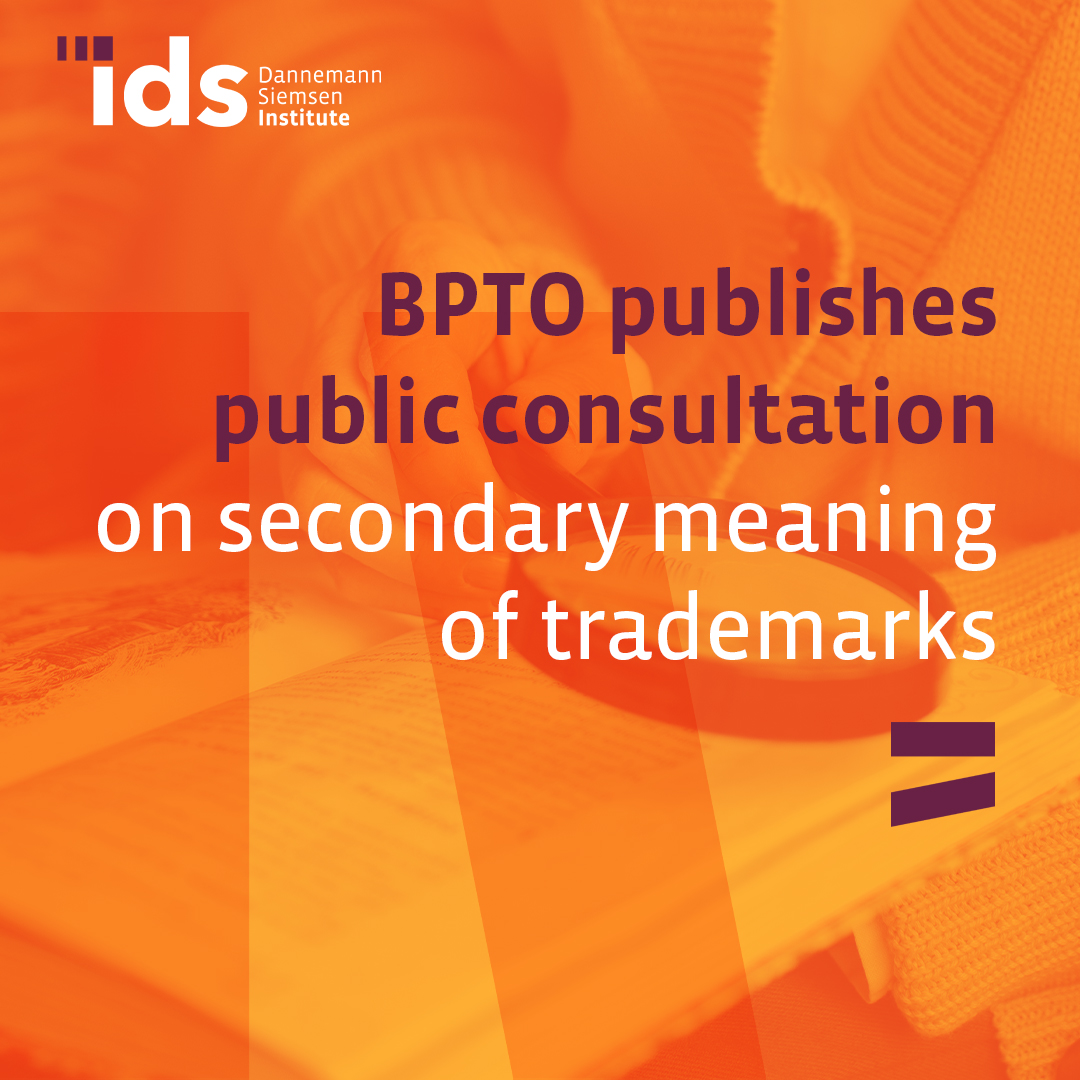11 de novembro de 2024
Share
BPTO publishes public consultation on secondary meaning of trademarks
On October 29, the Brazilian Patent and Trademark Office (BPTO) opened a new public consultation on the analysis of the acquisition of distinctiveness through use during the trademark registrability examination. The consultation, published in Revista da Propriedade Industrial No. 2,808 and in Diário Oficial da União No. 211, aims to collect suggestions for an ordinance to amend INPI/PR Ordinance No. 08, of January 17, 2022.
Along with the public consultation, the BPTO released a draft with the new provisions of the ordinance it intends to reform, which deals with how the acquisition of trademark distinctiveness will be analyzed in the registration process by the agency. According to article 84-A, proof of secondary meaning allows the owner to demonstrate the applicability of exceptions to the restrictions laid down in the Industrial Property Law (IPL), especially in cases of prohibition based on the absence of distinctiveness. Article 84-B also defines inherent distinctiveness as the ability of a sign to identify the origin of products or services, differentiating them from competitors.
Article 84-C provides that a sign initially lacking distinctiveness may be registered if it is proven that its effective and continuous use has generated recognition by the relevant consumer public. Thus, the application must be filed with adequate proof of the acquisition of distinctiveness, or it will be rejected on the basis of art. 122 or art. 124, items II, VI, VII, VIII, XVIII or XXI of the IPL. Article 84-D also establishes that the request for examination of secondary meaning can be made at the time of filing the trademark or in an administrative appeal against rejection for lack of distinctiveness. The provision also states that this request must be unique and accompanied by appropriate supporting documentation.
Proof of distinctiveness, according to article 84-E, will require evidence of continuous and substantially exclusive use of the trademark for five years, demonstrating that “a large portion of the national consuming public of the goods or services in question recognizes the sign that is the subject of the application for registration as a trademark associated exclusively with its applicant, capable of identifying the goods and services associated with it, and differentiating it from those that are identical or similar from its competitors”. The article specifies that the documentation must be filed within specific deadlines for acceptance (within 60 (sixty) days of the date of the application).
Finally, article 96-A mentions that e-INPI (INPI’s Electronic Industrial Property Management System) will make the functionality available for petitions and documentation for the acquisition of distinctiveness, with a date to be set in future regulations.
Those interested in the public consultation have 90 days from the date of publication to send their suggestions to the following e-mail address: consultapublicamarcas@inpi.gov.br, using only the form provided. After the deadline, the BPTO will submit responses to the comments received and publish the definitive text of the normative act and analysis guidelines.
More information on the BPTO’s public consultation can be accessed via the link: Consulta pública sobre distintividade adquirida de marcas
Note: For quick release, this English version is provided by automated translation without human review.
